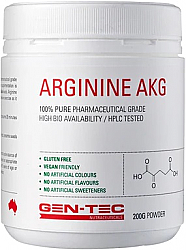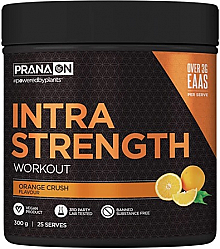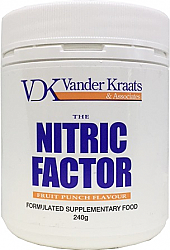L-Arginine Supplements
-
Price 0
-
Brand 0
-
Category
- L-Arginine (3)
- Amino Acids (40)
- BCAAs (29)
- Intra-Workouts (29)
- Essential Amino Acids (19)
- Post-Workout Recovery (15)
- Amino Acid Blends (12)
- Nitrix Oxide Supplements (12)
- Beta Alanine (4)
- Glutamine (4)
- Lysine (2)
- Leucine (1)
- Optimum Nutrition (1)
- Scivation (1)
- Scivation (1)
- Tyrosine (1)
- Show more [+]
About L-Arginine Supplements
L-Arginine is a non-essential amino acid that the human body synthesizes from glutamine, glutamic acid and proline. Under certain circumstances, however, we may not be able to produce enough to meet our needs. Rich dietary sources of L-Arginine are pumpkin seeds, soybeans, peanuts, dairy, chickpeas and lentils.
L-Arginine alpha-ketoglutarate (AKG) is a form of arginine supplementation, which is an arginine molecule attached to an AKG molecule. AKG is a natural constituent of the citric acid cycle (Kreb's cycle), situated between isocitrate and succinyl CoA. AKG supplementation may be helpful during recovery from injuries and to support wound healing, as it is believed to increase protein synthesis. It may also assist with muscle recovery and cellular energetics.
L-Arginine has many uses in the body, though the most well-known is its use for Nitric oxide (NO) production. NO is a gas produced in the body that signals the smooth muscles to relax, thus dilating blood vessels and improving peripheral circulation. This means more blood, which carries nutrients and oxygen, is delivered to the extremities, including muscle. For this reason, many athletes and bodybuilders use L-Arginine to improve muscle "pumps" and assist with performance. However, the AKG molecule may be just as effective in assisting with recovery and muscle growth. Arginine is also used in the body for the natural synthesis of creatine, proline, agmatine and as a structural component of muscle tissue.
Arginine has been shown in clinical trials to reduce markers of cardiovascular disease. This was reported in the journal F1000 Research in 2014. At 2,000mg (2 grams) per day, this amino acid was shown to reduce triglycerides, LDL cholesterol and even fasting blood sugar. Though amino acids are categorised as essential or non-essential, meaning the body can synthesize them or it can't, arginine is a semi or conditionally-essential amino acid. This categorisation has been suggested for some metabolically important amino acids, as under specific stressful physiological conditions, the body may not be able to synthesize enough to meet demands.
A study published by Healthcare in 2023 showed that daily supplementation of 5g arginine by healthy resistance training men led to an increased muscle gain, increased fat loss and decreased blood pressure. Other research has demonstrated the ability of arginine to increase growth hormone secretion from the pituitary gland in humans, perhaps mediated by decreases in somatostatin secretion. This makes arginine one of the few natural compounds to do so. The role of growth hormone is complex in the human body, where it supports the regeneration of many soft tissues, such as tendons, ligaments and collagen, as well as supporting muscle mass repair and growth. This makes arginine a unique amino acid for supporting the various soft tissues of the body, and also recovery from sports and exercise. This biological effect was reported all the way back in 1982, in Clinical and Translational Endocrinology.








